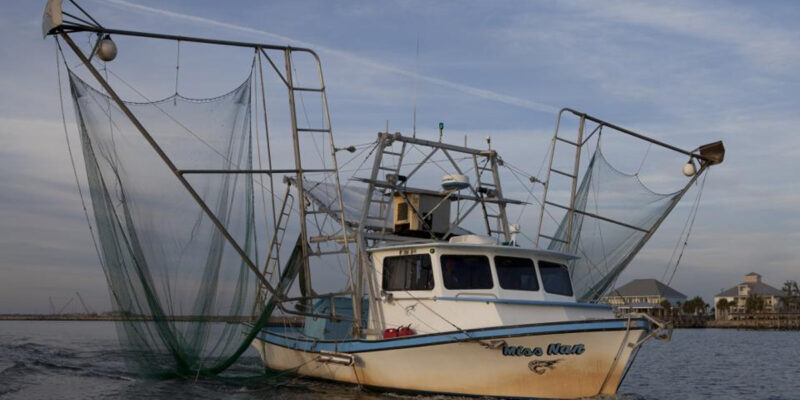(The Center Square) – The screws on foreign shrimp may be further tightened with a newly introduced bill from Louisiana Republican Sen. Bill Cassidy.
“President Trump imposed substantial tariffs on Indian-origin goods in August, which should reduce imports of Indian shrimp in the final months of 2025,” the Southern Shrimp Alliance wrote in a release. “However, if these tariffs are reduced or eliminated, the U.S. market will once again be overwhelmed by cheap, unfairly traded Indian shrimp. The India Shrimp Tariff Act offers a long-term solution that would prevent future market-disrupting spikes in Indian shrimp exports to this country.”
The additional duties imposed would be assessed “in addition to any duty imposed under any other provision of law,” the alliance said.
The India Shrimp Tariff Act would phase in a steep tariff schedule on shrimp imported from India – the largest foreign supplier to the U.S. market – starting with a 10% duty in January 2026, increasing to 20% in 2027 and 40% by 2028.
The measure also adds a 10 cents per kilogram duty to fund expanded federal inspections of imported shrimp and catfish.
It would also require country-of-origin labeling for cooked shrimp and crawfish sold at retail, ensuring consumers know the origin of their purchase.
“People come from all over to try Louisiana gumbo, jambalaya, and shrimp and grits. That’s because our shrimpers and catfish farmers meet high standards,” Cassidy said. “By leveling the playing field, this bill protects Louisiana seafood and the jobs that depend on it.”
Hyde-Smith called the measure a necessary corrective to years of market manipulation.
“For too long Indian shrimp has been dumped on the U.S. market with minimal penalty or regulation, which has come at the expense of domestic shrimpers, processors, restaurants, and consumers,” Hyde-Smith said.
The bill comes amid an historic surge in Indian shrimp imports, which reached 420.3 million pounds by July 2025 – a 22.5% jump from the previous year – even with antidumping and countervailing duties already in place. India supplied 42.7% of all frozen warmwater shrimp imported into the U.S. this year, driving prices down to $3.61 per pound compared to $3.92 for other sources.
Industry leaders say that glut has devastated domestic producers, who now supply less than 10% of U.S. shrimp consumption.
“There’s a tremendous cost to litigate trade remedy laws, and Indian shrimp continues to flood into our market,” said John Williams, executive director of the Southern Shrimp Alliance. “American shrimp fishermen need lasting solutions that prevent the U.S. from being the world’s dumping ground for unethically-produced shrimp.”
The bill has a sister in the House of Representatives, where the Save Our Shrimpers Act remains stalled in the Financial Services Committee nearly six months after its introduction.
That legislation, sponsored by U.S. Rep. Troy Nehls, R-Texas, and backed by 17 bipartisan cosponsors from Gulf and Atlantic shrimp-producing states including Cassidy, would prohibit U.S. tax dollars from supporting foreign shrimp farms and processing facilities through international financial institutions like the World Bank.
“American shrimpers, including those in my district, are struggling to stay afloat due to an excess of foreign shrimp flooding our markets,” Nehls said. “Worse, American tax dollars are being used to finance foreign shrimp farms, which are driving our own shrimpers out of business.”
A 2023 report from the Southern Shrimp Alliance found that the U.S. Treasury delegation supported 89% of shrimp-related aquaculture projects it reviewed, despite a federal mandate to oppose funding for commodities in global surplus.
India alone has secured more than $370 million in shrimp-related development assistance since 2005, while the U.S. distributed just $50 million in seafood processing grants nationwide in 2022.
Advertisement
Advertisement

